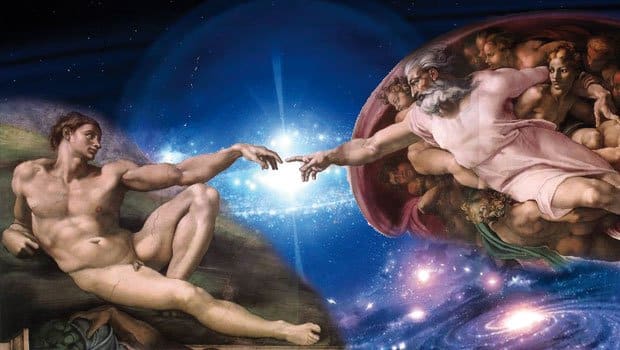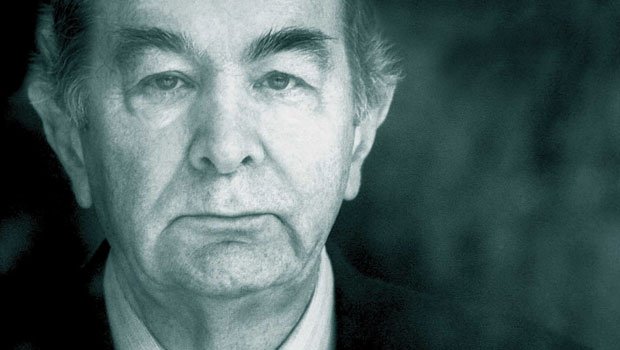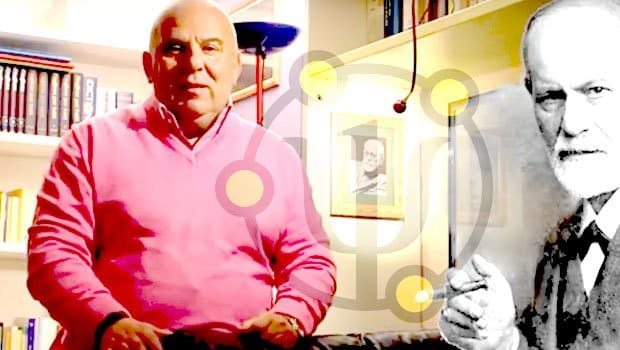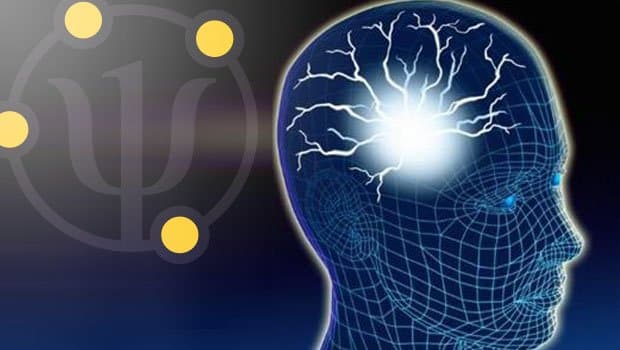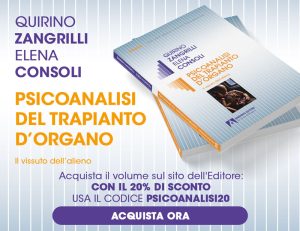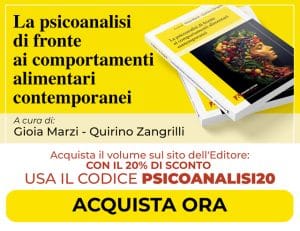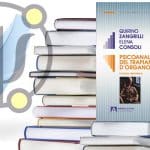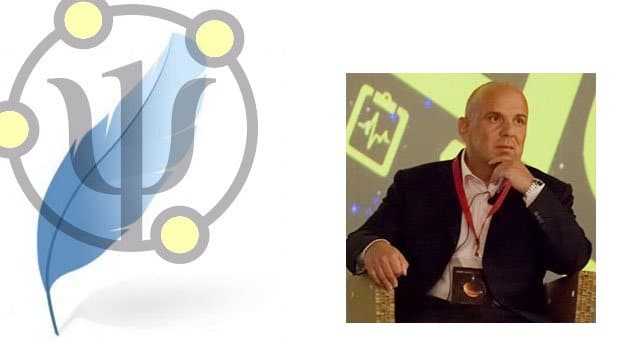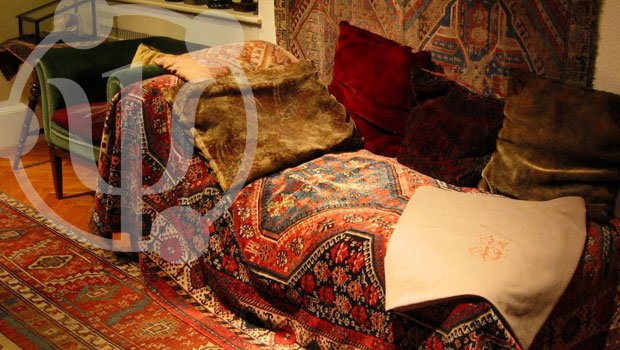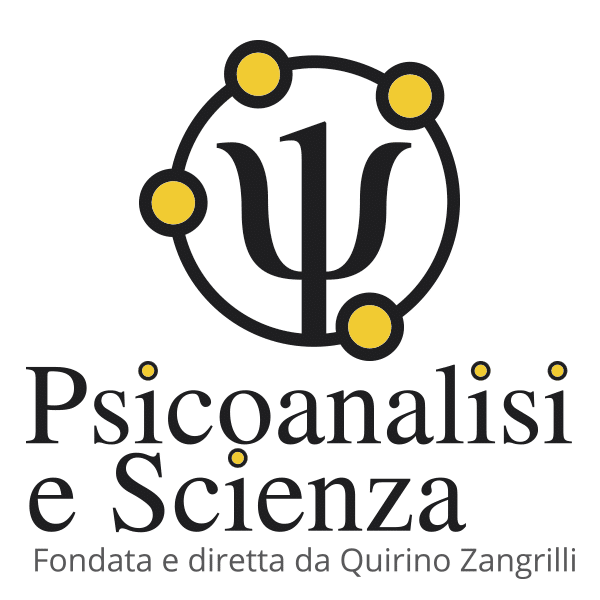In this brief Newsletter I would like to signal to the readers of “Science and Psychoanalysis” a wonderful article reported by the Italian newspaper “Corriere della Sera” of the 29 September 2005, which collects excerpts of a preface written by the Nobel Prize Winner James Watson, one of the discoverers together with the Englishman Francis Crick, of the DNA double helix structure, of a book dedicated to the natural evolution theory by Charles Darwin.
The scientist demonstrates with simplicity and, let’s say, neutrality the evidences which make the creationist hypotheses an animistic attempt of denial of the laws of chance. Persuaded that the Genesis of the Bible is the literal and real description of the creation of the universe, the Creationists ask for the teaching of their theory in the schools besides the traditional theory (but we will say more precisely as we will see, the “natural law”) of evolutionism.
The compulsion for the need to represent a Creator and ‘Deus ex machina’ is basically the impossibility to come out of a paranoid position of parental submission.
When the child, under the traumatic shove of the frustrations which come to him from the environment, begins to have to give up his own omnipotence, he makes an ultimate attempt of a narcissistic safeguard, attributing to his parents, above all to the Father, the omnipotence role.
It is a defence against the overwhelming anguish which derives from the consideration that the human being, as Freud says, is destined to remain forever a child, at the mercy of the nature’s forces, of the illnesses and of the unavoidable death.
It is then that man creates his own gods, who he fears but whose favour he tries to gain and to whom he entrusts himself to be protected.
To remain in such an infantile state means to safeguard a pathological state of neurosis, founded on the persecutory illusion that there is something which directs fortune and mishap, an omnipotent entity to ingratiate oneself to, which will be able to protect us from the adversities of life and, above all things, to overcome death.
Freud affirms that humanity will overcome this neurotic phases in the same way in which, growing, many children recover from their similar neurosis.
The fact that men who deal with science can adhere to creationist beliefs, demonstrates the power of the splitting and isolation mechanisms: the elementary evidence which Watson lists in the present article are isolated and neutralised under the pressure of the anguish to perceive the absence of an aim and the randomness of attempts, including the human one.
I would like to conclude this brief article with a quotation of the final thoughts of the great scientist: “Today there is an attempt in act agreed upon by some scientists influenced by religion to treat the evolution as a theory, as if this in some way would diminish the authority and the power in explaining how the world works. One of the greatest gifts that science has given to the world is the continuous elimination of the supernatural, and this is a lesson that my father taught me: knowledge frees the human species from superstition. We can live our life without the constant fear of having offended this or that divinity which must be placated by magic spells or sacrifices, or of being at the mercy of the demons or the Parcae. If the knowledge increases, the intellectual obscurity which surrounds us will be illuminated and we will learn more about the beauty and the wonder of the natural world.
Let’s not beat about the bush: the common affirmation according to which the evolution, through the mechanism of natural selection, is a ‘theory’, exactly as that of the String Theory is a theory, is wrong.
The evolution is a law (with several elements), as substantiated as any other natural law, whether it is that of gravity, movement or Avogadro’s law.
The evolution is a matter of fact, called into question by those who choose to deny the evidence, put aside common sense and instead believe that one arrives at the unchangeable knowledge and wisdom only through Revelation“. 1
Such reflections also indicate what credibility and psychic integrity the “would-be” psychoanalysts may have who conserve, with various rationalisations, their religious beliefs.
Scientific knowledge is incompatible with the religious creed: only the conservation of the defence mechanisms such as isolation, negation, splitting and denial, can allow information which annul each other, to co-exist. St. Augustine who clearly wrote: “Melius scitur Deus, nesciendo” (God is better known by not knowing. St. Augustine. De Ordine) knew this well.
Written by: Quirino Zangrilli © Copyright
Translated by Linda De Nardo
Notes:
1 James D. Watson. Introduction to «The indelible stamp: the great works of natural selection by Charles Darwin», Running Press/Perseus Books Inc. (translated from the Italian version).
E’ autore di 74 tra libri e pubblicazioni scientifiche. Ha partecipato in qualità di relatore o di presidente di sessione a numerosi Convegni scientifici nazionali ed internazionali.
Il suo libro “La vita: involucro vuoto”, pubblicato da Borla nel 1993, è in adozione dal 1994 presso la Cattedra di Psicologia Dinamica dell’Università di Torino.
Nel 1994 gli viene assegnato il “Premio Nazionale Ciociaria per la Medicina”.
E’ l’ideatore e fondatore della rivista multimediale “Psicoanalisi e Scienza”, la più seguita rivista di psicoanalisi on line al mondo in lingua italiana (Fonte: Entireweb, Alexa, Google, Virgilio, Arianna., etc.). Nel 2012 partecipa come Relatore alla Rassegna Scientifica di BergamoScienza.
Nel 2013 espone i suoi studi sull’nterazione materno-fetale nella Sessione Speciale dell’ XI Congresso Mondiale di Medicina Perinatale a Mosca con la relazione “Intrauterine Imprinting”.
Nel 2024 riceve il Premio Accademico d’Onore della Accademia Culturale Internazionale Cartagine 2.0.
Nel 2024 docente ad Almaty – Kazakhstan presso il workshop di psicoanalisi sul tema della violenza, promosso dall’Università di psicoanalisi di Mosca in collaborazione con l’Istituto svizzero di micropsicoanalisi.
Nel 2025 pubblica come curatore il libro “LA PSICOANALISI DI FRONTE AI COMPORTAMENTI ALIMENTARI CONTEMPORANEI” presso Armando Editore
Nel 2025 pubblica il libro “PSICOANALISI DEL TRAPIANTO D’ORGANO – IL VISSUTO DELL’ALIENO” presso Armando Editore
Doctor Quirino Zangrilli was born in Fiuggi in 1955. Graduated with honours in Medicine and Surgery in 1980, he practices Psychoanalysis, with intensive method, since 1982.
He is author of 74 scientific pubblications. He has attended as speaker or president of session to many national and international scientific Conventions.
His book “La vita:involucro vuoto” (Life: empty involucre), published by Borla in 1993, has been in use by the Chair of Dynamic Psychology at Turin’s University since 1994.
He is the author and founder of the multimedia review “Psicoanalisi e Scienza” (Psychoanalysis and Science), the most read Italian on line review of psychoanalysis.
In 2012 he participated as a Speaker at the Scientific Festival of BergamoScienza.
In 2013 he illustrated his research on the maternal-fetal interaction in the Special Session of the XI World Congress of Perinatal Medicine in Moscow with his relation “Intrauterine Imprinting”.
He is visiting teacher at Moscow Institute of psychoanalysis and training psychoanalist of Swiss Institute of Micropsychoanalysis.
In 2024 he is a teacher in Almaty – Kazakhstan at the psychoanalysis workshop on the topic of violence, promoted by the Moscow University of Psychoanalysis in collaboration with the Swiss Institute of Micropsychoanalysis.
In 2024 he received the Honorary Academic Award of the Carthage 2.0 International Cultural Academy
In 2025 he published as an editor the book “PSYCHOANALYSIS IN THE FACE OF CONTEMPORARY EATING BEHAVIOURS” at Armando Editore
In 2025 he published the book “PSYCHOANALYSIS OF ORGAN TRANSPLANTATION – THE EXPERIENCE OF THE ALIEN” at Armando Editore
Le Le Docteur Quirino Zangrilli est né à Fiuggi en 1955. Diplômé avec mention en Médecine et Chirurgie en 1980, il pratique la psychanalyse depuis 1982, en utilisant une technique intensive.
Il est l’auteur de 74 livres et publications scientifiques.
Il a participé en tant que conférencier ou président de session à de nombreuses conférences scientifiques nationales et internationales.
Son livre “La vie : enveloppe vide”, publié par Borla en 1993, est adopté depuis 1994 par la Chaire de Psychologie Dynamique de l’Université de Turin. En 1994, il a reçu le “Prix national Ciociaria de médecine”.
Il a conçu et fondé le magazine multimédia “Psicoanalisi e Scienza”, qui est le magazine de psychanalyse en ligne en italien le plus suivi au monde. (Source : Entireweb, Alexa, Google, Virgilio, Arianna., etc.).
En 2012, il a participé en tant que conférencier à la colloque scientifique de BergamoScienza.
En 2013, il a exposé ses études sur l’interaction materno-fœtale lors de la session spéciale du XIe Congrès mondial de médecine périnatale à Moscou avec le rapport “Intrauterine Imprinting”. Il est chargé d’enseignement au cours de spécialisation de trois ans en psychanalyse, psychothérapie psychanalytique et consultation psychanalytique à l’Université de Moscou.
Il est membre didacticien de l’Institut Suisse de Micropsychanalyse et de la Commission pour la Pratique de celui-ci.
En 2024, il enseigne à Almaty – Kazakhstan à l’atelier de psychanalyse sur le thème de la violence, promu par l’Université de Psychanalyse de Moscou en collaboration avec l’Institut Suisse de Micropsychanalyse.
En 2024, il reçoit le Prix Académique Honoraire de l’Académie Culturelle Internationale Carthage 2.0.
En 2025, il publie en tant qu’éditeur le livre « LA PSYCHANALYSE FACE AUX COMPORTEMENTS ALIMENTAIRES CONTEMPORAINS » chez Armando Editore
En 2025, il publie le livre « PSYCHANALYSE DE LA TRANSPLANTATION D’ORGANES – L’EXPÉRIENCE DE L’ÉTRANGER » avec Armando Editore
В 2024 году является преподавателем в Алматы – Казахстан на семинаре по психоанализу на тему насилия, проводимом Московским университетом психоанализа в сотрудничестве со Швейцарским институтом микропсихоанализа.
В 2024 был награжден Почетной академической премией Академии Международной Культуры «Карфаген 2.0».
В 2025 году он опубликовал в качестве редактора книгу «ПСИХОАНАЛИЗ В РАМКАХ СОВРЕМЕННОГО ПИЩЕВОГО ПОВЕДЕНИЯ» в издательстве Armando Editore
В 2025 году он опубликовал книгу «ПСИХОАНАЛИЗ ТРАНСПЛАНТАЦИИ ОРГАНОВ – ОПЫТ ЧУЖОГО» совместно с Армандо Эдиторе

